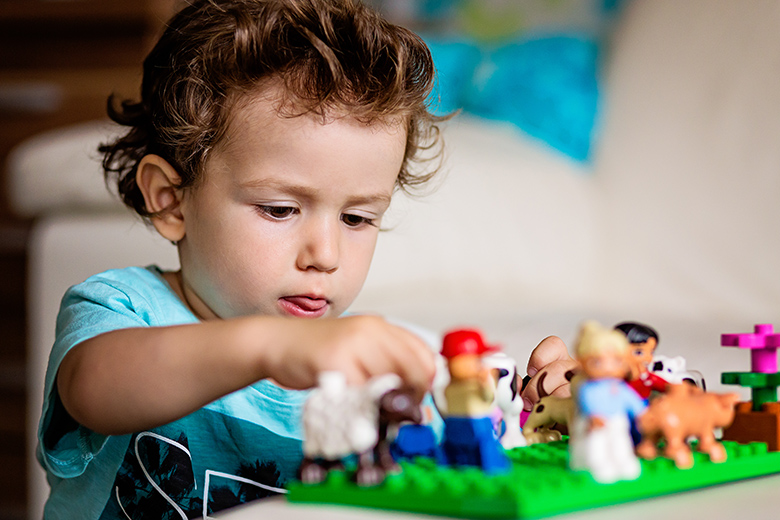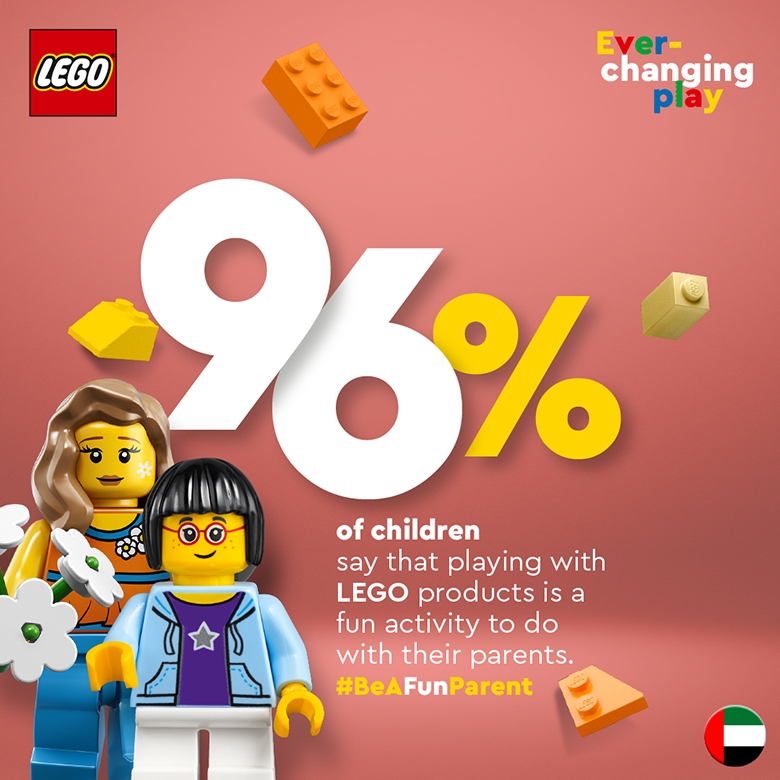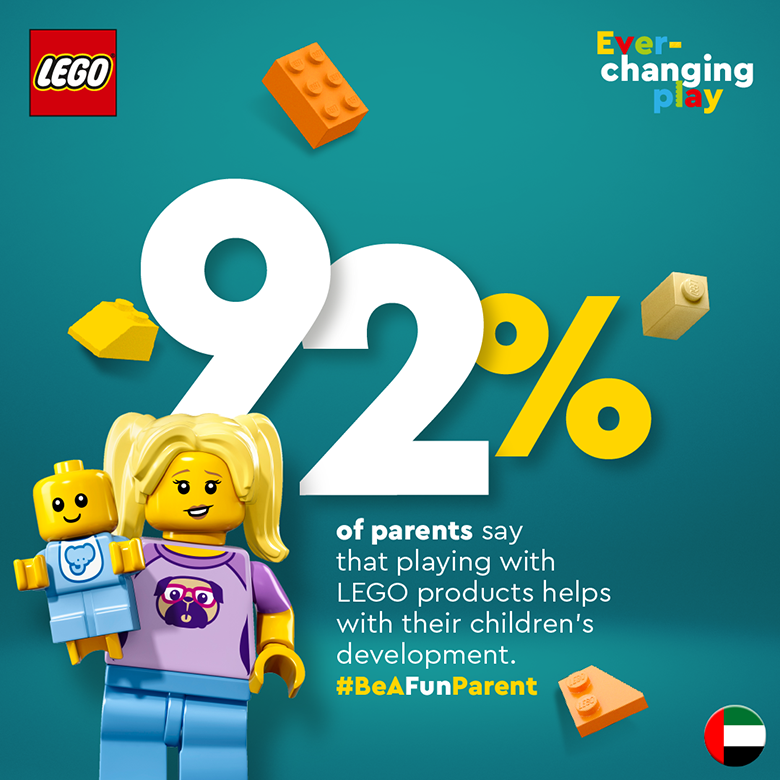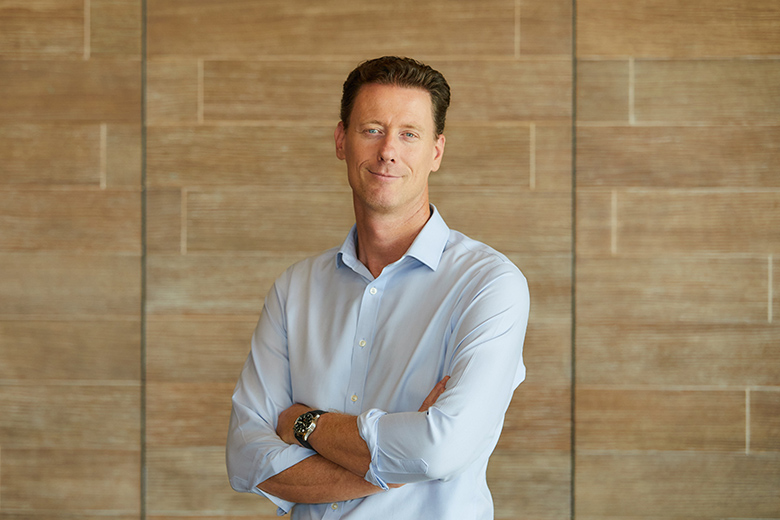When you browse through the vast array of LEGO® sets, you can see why it is so popular with both children and adults worldwide. From car sets to dollhouses, dinosaurs to superheroes, it’s hard to discover a LEGO set that doesn’t stimulate your construction, creativity, imagination, learning, and endless play possibilities!

Education Saudi recently had its own adventure when it chatted with Jeroen Beijer, General Manager/Vice President – Middle East and Africa at LEGO Group, first asking him about the company’s Play Well 2022 survey, which yielded some extremely interesting results from both children and their parents.
Education Saudi: What were the most fascinating findings from the LEGO Play Well 2022 study, and did you receive any surprises?
Jeroen Beijer: Perhaps not surprising, but certainly a significant finding from the study was that nearly 9 out of 10 children in Saudi Arabia and the UAE stated they wished they could play more with their parents. When this is combined with another finding showing that over 70% of parents feel guilty about spending too much time on their phones and the internet in front of their children, it suggests that we have a tremendous opportunity to spend more quality time together as a family and break some unhealthy routines.

70% of parents feel guilty about spending too much time on their phones and the internet in front of their children
EdSaudi: Did the parents who completed the survey suggest that LEGO was a form of play that they could sometimes join in with? Did it promote fun for the whole family? And do you think this is an important aspect of play?
JB: Whether you are 1 or 99 years old, we know that LEGO Play appeals to children of all ages, abilities, and interests all across the world and may be done alone or with others. We at the LEGO Group want to make sure that everyone who plays with our products has both the joy of building and the pride of creation. We know that playing together makes children feel valued and recognised, and it boosts self-esteem and self-confidence. Unsurprisingly, playing together helps parents connect with their children and favourably influences their child’s personality development. In fact, 93% of parents in Saudi Arabia and 95% in the UAE believe that play strengthens family bonds.

95% of parents in Saudi Arabia and 96% of parents in the UAE believe that their family is happier when they play together more
EdSaudi: Mental health problems in children have increased dramatically in recent years, but isn’t play the most natural way of combating stress and anxiety in children?
JB: We live in increasingly busy and often stressful times, and this affects both adults and children.
This LEGO Play Well 2022 study proved that play is a great way for children to shift their focus and mindset.
In our study, 8 in 10 children stated that play helps them switch off and relax after a day at school.
Furthermore, the study found that 95% of parents in Saudi Arabia and 96% of parents in the UAE believe that their family is happier when they play together more. We all know that eating a balanced diet is important for staying healthy, but I feel we should also be more conscious of how we spend our time outside of work/school. We must ensure that our diet includes enough play, as a healthy play diet is an important component of a healthy, happy child and family.
EdSaudi: Can a lack of play stunt a child’s social and emotional development?
JB: Multiple studies have confirmed that play is one of the best and most natural ways to learn new skills, and through play, children learn so many critically important things.
Let me illustrate a few:
- Through open-ended and non-scripted play kids learn to use their imagination and creativity to define things that never existed before.
- As kids encounter new challenges, they learn how to solve problems and try different solutions until they find the right one, thus teaching them problem-solving and resilience.
- Through playing with others, kids learn how to collaborate and resolve conflicts as well as appreciate the different inputs and insights other children might have.
- Play also teaches them that it is okay to fail but most importantly you need to keep trying.
- At the LEGO Group, we want every child to be prepared for a bright future by giving them plenty of joyful, playful experiences that enable them to thrive now and in the future.
70% of parents feel guilty about spending too much time on their phones and the internet in front of their children
EdSaudi: Would you agree with Fred Rogers, the creator, showrunner, and host of the preschool television series Mister Rogers’ Neighbourhood, that: “Play is often talked about as if it were a relief from serious learning. But for children play is serious learning. Play is really the work of childhood.”
JB: Yes, I fully agree. Children possess an amazing natural potential to learn and are very curious by nature. Young children also have an imagination and inventiveness that helps them create new ideas and opportunities, as well as a strong motivation to connect and engage with others. Playing, therefore, has a central role in preparing children for challenges in childhood and throughout adulthood.
As parents, we must take an active role in giving our children these play-learning opportunities and experiences. As a parent, I believe we should all be mindful that our children do not spend an inordinate amount of time online, as watching someone ride a bicycle on YouTube or TikTok does not bring the same learning as attempting to create something yourself.
EdSaudi: When I was a child back in the 60s, I had LEGO, but not the vast choice of concepts – such as Harry Potter and Star Wars – that are available today. Do you believe that incorporating movie themes helps children to utilise their imaginations more and assists them in learning faster? I think it would have done with me.
JB: We believe there is no right or wrong way to play, and we observe a wide range of play styles and play preferences in children. Some kids prefer making things, while others enjoy role-playing with various characters. The expansion of different themes has enabled us to reach a bigger audience and deliver something of interest to everyone.
In our study, 8 in 10 children stated that play helps them switch off and relax after a day at school
EdSaudi: How do you see the LEGO brand continuing to grow in the Middle East – as a brand it seems to offer more and more every year, so do you think it can become increasingly important in the education sector?
JB: We are continuing our phenomenal growth journey in the Middle East as more parents and kids are becoming fans of LEGO play. For more than 40 years, LEGO Education has been working with teachers and educational specialists to deliver playful learning experiences that bring subjects to life in the classroom and make learning fun and impactful. We have a wide range of physical and digital educational resources that encourage students to think creatively, reason systematically, and release their potential to shape their own future, building academic and critical 21st-century skills.
Whether you are 1 or 99 years old, we know that LEGO® Play appeals to children of all ages, abilities, and interests
EdSaudi Play is the foundation of being a well-functioning human being, and not only in childhood – did you play with LEGO bricks as a child, and do you still ‘have a go’ today? When I visit my granddaughter, I must admit I start building things … even when she’s not there!
JB: Yes, I grew up with LEGO bricks and, as a child, I loved playing with LEGO City and Space, and at a later stage LEGO Technic. Today, my house is filled with LEGO sets as both my son of 9 and daughter of 11 still love to build and play with them, and with the LEGO Botanical sets, even my wife has caught the LEGO building virus! I hope that at the LEGO Group we continue to inspire children and adults to continue to play because as the LEGO Play Well study shows, it’s a vital ingredient of a happy life!
LEGO Middle East


